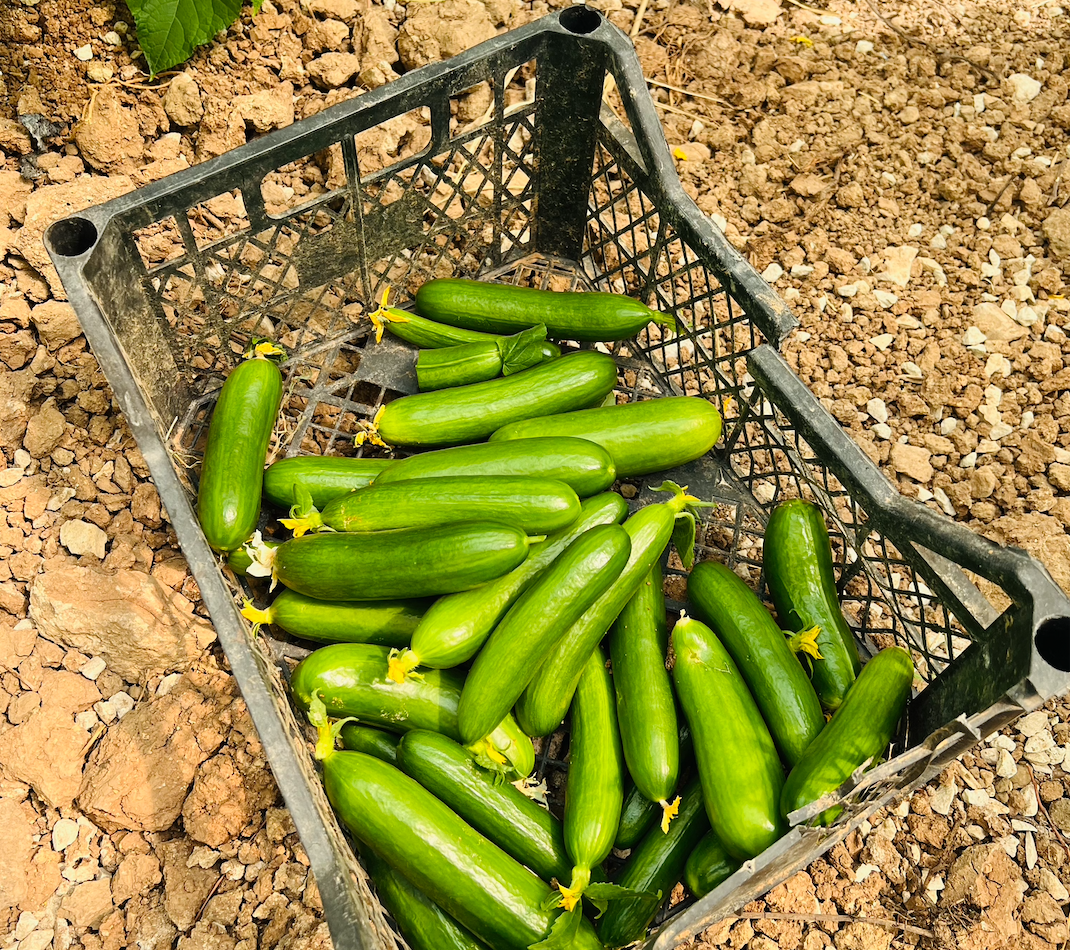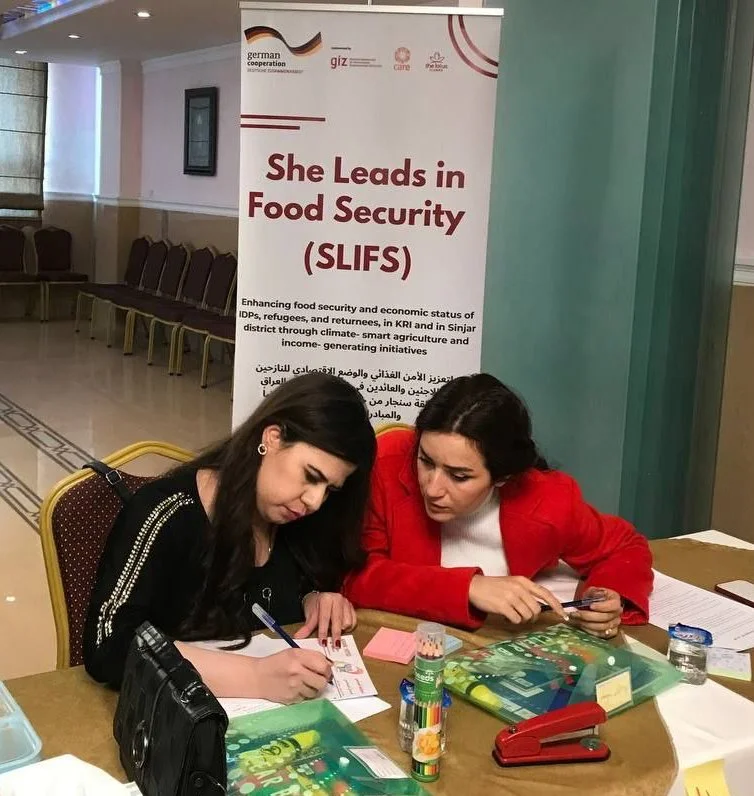Our greenhouse renovation project for women is thriving
Earlier this year, we undertook the renovation of eight greenhouses at Essyan camp which were kindly given to the Lotus Flower by AVSI.
After a huge amount of work, the greenhouses were repaired and cleaned, and then handed over to 40 displaced women, who have since been growing their own produce – not only to feed their families, but also to earn an income. The women also took part in our GET Ahead business training module, and financial support was provided so they could purchase the necessary plant and vegetable seeds and equipment. The women have additionally received expert training and mentoring on technical aspects.
Happily, in just a few months, the greenhouses have begun delivering fresh vegetables and healthy plants for the women - as you can see in these photos and the video at the bottom of this post.
The greenhouse initiative is part of our She Leads in Food Security Project, which is providing income-generating and agricultural initiatives, as well as awareness-raising around the climate crisis, the need for sustainable solutions and topics such as food waste and preservation, nutrition and composting.
The project is being delivered in partnership with CARE, funded by BMZ and implemented by Deutsche Gesellschaft für Internationale Zusammenarbeit (GIZ).
This project is especially needed since Iraq has been identified as fifth most vulnerable country to climate change globally due to decreased water and food availability, extreme temperatures and associated health problems. Increased socio and economic challenges, including the pandemic, devaluation of the Iraqi Dinar and impact of the Ukraine conflict on food prices, have all added to the challenges of IDPs and returnees in meeting basic food needs. Low rainfall and rising temperatures have sparked a water scarcity crisis, causing crops to fail and exacerbating the food security status of the vulnerable.
According to Iraq’s 2022 Humanitarian Needs Overview, more than 82% of in-camp IDPs are vulnerable to food insecurity and 55% of out-of-camp IDPs reported food to be among their priority unmet needs, with 50% of returnees reporting the same. High levels of aid dependency and lack of access to income puts people’s nutritional, health, and food security status at risk of further deterioration, resulting in negative coping strategies such as reliance on debt, reducing food intake, early marriage and child labour.
Accordingly, our She Leads in Food Security project aims to provide IDP and refugee women, girls and people with disabilities with improved food security, access to sustainable food income-generation and increased economic independency.
We are so proud of the way it is going so far, and will bring you more news on the programme soon.





